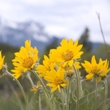
A powder containing arnica and echinacea may be both safe and effective in preventing infection after umbilical cord detachment, according to an Italian study.
Arnica montana is commonly used in herbal ointments and oils applied on the skin as an anti-inflammatory and pain-relieving agent for aches, bruises, and sprains on unbroken skin. Highly diluted homeopathic preparations are considered safe and are widely used for the treatment of injuries. However, full doses of arnica may be toxic when taken by mouth. Arnica may also be damaging to the heart, resulting in high blood pressure.
The U.S. Food and Drug Administration (FDA) has declared arnica an unsafe herb due to adverse effects reported when taken by mouth. In contrast, the German market offers over 100 preparations of arnica to its consumers. In Canada, arnica is not allowed for use as a non-medicinal ingredient for oral (by mouth) use products.
In the current study, the researchers indicated that newborns are typically discharged after 48-72 hours of life until umbilical cord detachment. They evaluated the safety and effectiveness of an arnica echinacea powder in reducing the risk of complications such as bleeding, skin redness, and bacterial infection. A total of 6,323 babies received arnica echinacea powder treatment twice daily, beginning in the hospital and then continued at home until cord stump detachment.
Stump detachment occurred in more than 89 percent of babies during the first four days of life, which increased to over 96 percent at six days. The researchers reported that no infections or bacteria were found. They stated that arnica echinacea use may help reduce hospital costs as a result of reducing complications. The treatment was also well received by both the medical staff and parents.
The researchers concluded that arnica echinacea treatment may be safe, effective, and cost-effective for use in newborns. Further study is needed to better understand and confirm these findings.
Arnica has been studied for many conditions, including bruising, blood clotting, acute diarrhea in children, and osteoarthritis. However, there is clear or conflicting evidence for its effectiveness for these purposes and more information is needed.
For more information about arnica, please visit Natural Standard's Foods, Herbs & Supplements Database.
The information in this brief report is intended for informational purposes only, and is meant to help users better understand health concerns. This information should not be interpreted as specific medical advice. Users should consult with a qualified healthcare provider for specific questions regarding therapies, diagnosis and/or health conditions, prior to making therapeutic decisions. Copyright © 2025 NatMed. Commercial distribution or reproduction prohibited. NatMed is the leading provider of high-quality, evidence-based, clinically-relevant information on natural medicine, dietary supplements, herbs, vitamins, minerals, functional foods, diets, complementary practices, CAM modalities, exercises and medical conditions. Monograph sections include interactions with herbs, drugs, foods and labs, contraindications, depletions, dosing, toxicology, adverse effects, pregnancy and lactation data, synonyms, safety and effectiveness.
